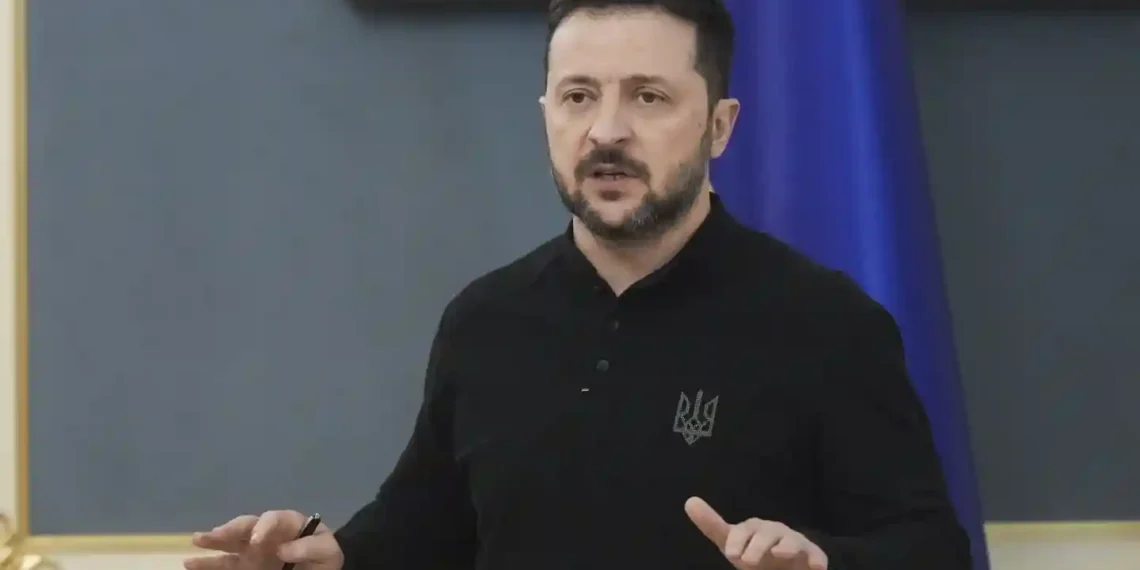Why Ukraine Hasn’t Held Elections Since Russia’s Invasion
Ukrainian President Volodymyr Zelenskyy would have been up for reelection in the spring of 2024—if not for Russia’s full-scale invasion. Now, as Ukraine remains under martial law, the legitimacy of his continued rule has become a propaganda tool for Moscow.
U.S. President Donald Trump even echoed Russian narratives, referring to Zelenskyy as a “dictator without elections,” though he later appeared to walk back the remark. Meanwhile, Western officials have quietly expressed their preference for elections to have taken place last year, before Trump’s potential return to office. However, Zelenskyy has remained firm: elections cannot happen until there is a ceasefire, a stance that most Ukrainians support.
The February 2022 invasion triggered martial law in Ukraine, suspending both presidential and parliamentary elections. With a fifth of the country occupied, millions of Ukrainians displaced abroad, and an active war raging, organizing a national vote is logistically impossible.
Under Ukraine’s constitution, elections cannot be held during martial law. Parliament was originally scheduled for elections in October 2023, while Zelenskyy’s five-year term would have ended in May 2024. However, as long as the war continues, elections remain legally and practically unfeasible.
Zelenskyy has made it clear that elections will only take place after a ceasefire is reached and martial law is lifted. He argues that attempting to hold elections now would weaken Ukraine at a critical moment, creating internal divisions when unity against Russia is paramount.
Beyond logistics, Zelenskyy has highlighted the near impossibility of allowing soldiers on the front lines to vote, accommodating millions of Ukrainians displaced abroad, and addressing those still in Russian-occupied territories. In response to concerns over legitimacy, Ukraine’s parliament passed a resolution affirming Zelenskyy’s authority and reiterating that elections will be postponed until after the war.
If elections were held today, the most prominent challenger to Zelenskyy would likely be Valery Zaluzhny, Ukraine’s former Army chief and now ambassador to Britain. His military leadership during the war has earned him strong public support.
Another key figure is Petro Poroshenko, Zelenskyy’s predecessor and leader of Ukraine’s largest opposition party. While analysts believe Poroshenko is unlikely to run again, his endorsement of a candidate could significantly influence the election’s outcome.
Ukraine’s democracy remains intact, but its electoral process is on hold due to the ongoing war. While external pressure mounts for elections, Ukraine’s leadership and people largely agree: national security must come first. For now, Zelenskyy’s tenure continues—until peace allows Ukraine to return to the ballot box.
This article was rewritten by JournosNews.com based on verified reporting from trusted sources. The content has been independently reviewed, fact-checked, and edited for accuracy, neutrality, tone, and global readability in accordance with Google News and AdSense standards.
All opinions, quotes, or statements from contributors, experts, or sourced organizations do not necessarily reflect the views of JournosNews.com. JournosNews.com maintains full editorial independence from any external funders, sponsors, or organizations.
Stay informed with JournosNews.com — your trusted source for verified global reporting and in-depth analysis. Follow us on Google News, BlueSky, and X for real-time updates.














